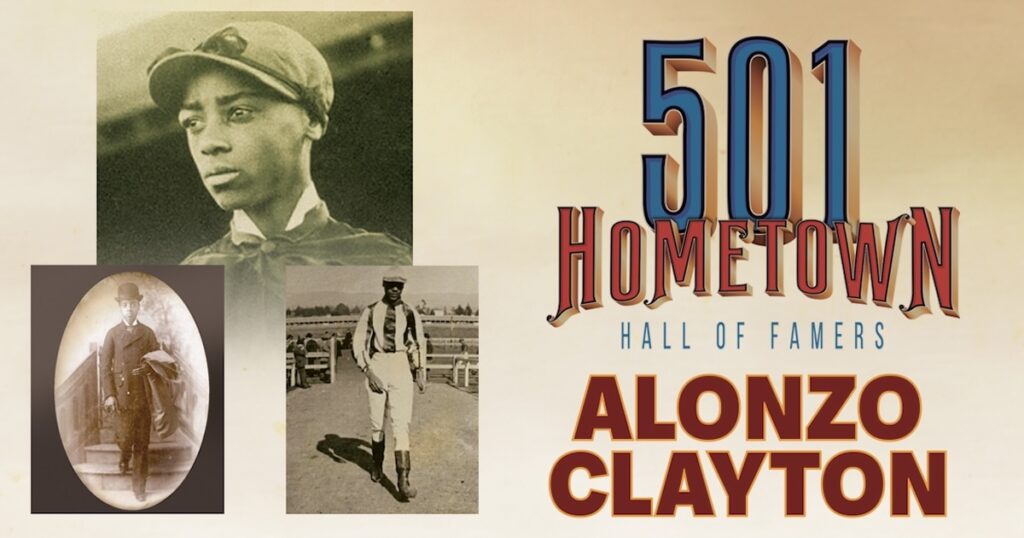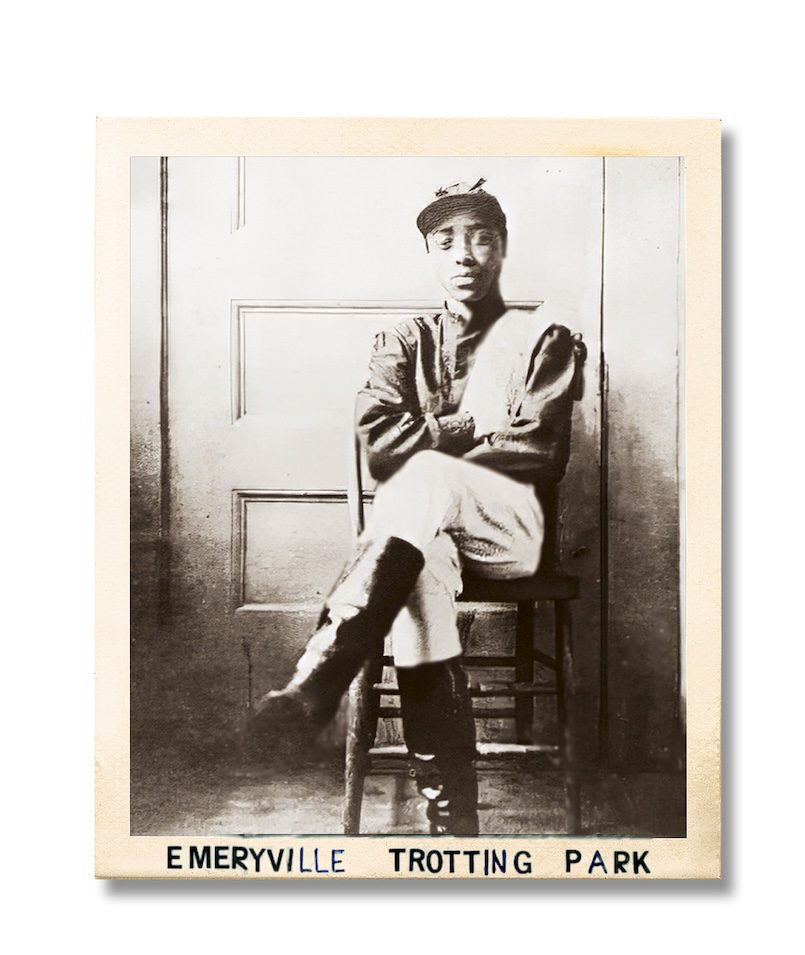01 Mar 2025 501 Hometown Hall of Famers: Alonzo Clayton
By David Grimes
Alonzo “Lonnie” Clayton may no longer be a household name, but way back in 1892, he gained national acclaim at the age of 15 when he became the youngest jockey to ever win the Kentucky Derby.
Clayton was inducted into the Arkansas Sports Hall of Fame (ASHOF) in 2012 as part of the 54th class, along with Raymond Bright, Margaret Downing, Bob Ford,
Harry Jones, Pat Jones, Bill Keedy, Elmer “B” Lindsey, Lee Mayberry,

U.S. Reed, Terry Wallace and the 1994 University of Arkansas NCAA national championship basketball team.
I have served on the ASHOF Board of Directors for more than two decades, along with quite a few very knowledgeable sports people. Since 1959, the ASHOF has enshrined several hundred inductees and keeps lists and information on hundreds of other worthy potential honorees. However, Clayton was nowhere on our radar.
That changed when some folks from North Little Rock brought him to our attention in 2011. After learning more about his story, he was an easy selection.
Clayton was born in 1876. Many records from that far back are often scarce and incomplete. Some accounts say he was born in Mississippi, while others claim he was born in Kansas City, Mo. His family moved to North Little Rock when he was 10 years old. His father was a carpenter, and his mother stayed at home to care for their nine children. Clayton attended school and worked as a shoeshine boy and ran errands for a hotel.
At the age of 12, he left home, some reports say he ran away, to join his older brother in Chicago to learn how to be a jockey at the Washington Park Race Track. He started out as a stable hand and an exercise rider, but in just a couple of years, he was riding as a jockey. His first victory came in 1890.

In those days, thoroughbred racing was one of the top sports in America, and the epicenter was the East Coast. It was there that Clayton would establish himself as one of the best jockeys of the decade. At the age of 14, he raced in New York City at Morris Park and in the Jerome Stakes, where he recorded his first win in a major race. On May 11, 1892, Clayton won the 18th running of the Kentucky Derby aboard Azra. Only 15 years of age, he is still the youngest jockey to ever win “The Run for the Roses” at Churchill Downs. He and Azra continued their winning ways that year, taking first place at the Clark Handicap and the Travers Stakes.
Clayton almost went back-to-back at the Kentucky Derby, finishing second in 1893. He also finished in the money twice more, coming in third in 1895 and second in 1897. His most successful year was 1895 when he won 144 races and finished in the money 60 percent of the time. In 1896, he finished third in the Preakness Stakes aboard Intermission.
Throughout Clayton’s remarkable career, he won other major races, including the Champagne Stakes and the Jerome Handicap in 1891, the Monmouth Handicap in 1893, the Kentucky Oaks in 1894 and 1895, the Saratoga Stakes in 1895, the St. Louis Derby in 1897 and the California Derby in 1898.
He also won the Arkansas Derby in 1895. The Oaklawn Jockey Club in Hot Springs did not run their first race until 1905, but thoroughbred racing was happening in various parts of Arkansas long before that. The now-defunct Arkansas Jockey Club operated a racetrack in Little Rock at Clinton Park in the latter part of the 19th century. In 1895, Clayton won their version of the Arkansas Derby aboard Laureate.
As the decade ended, his career began to decline. By the start of the 20th century, opportunities for African-American riders like Clayton vanished as stable owners switched to using White jockeys only. He attempted to continue his career, racing in smaller venues in Tennessee and Montana, but was ultimately unsuccessful.
Clayton’s early successes had afforded him the opportunity to purchase property in Little Rock and build a home, and he retired there in 1904. He lived out his last few years in California, where he worked as a hotel bellhop. He died in 1917 at the age of 41 of chronic pulmonary tuberculosis.









